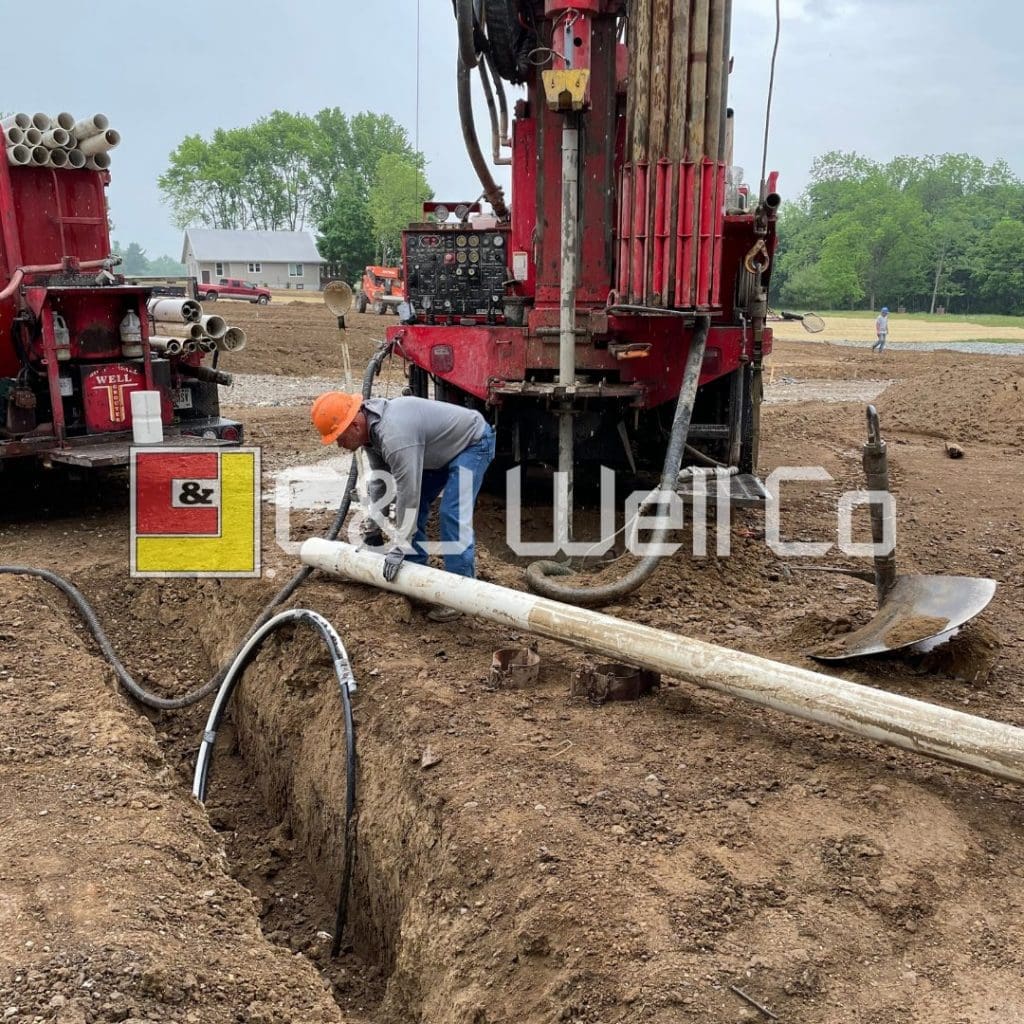Does a Deeper Well Yield Better Water?
Throughout the 25 years of well drilling, we often get asked, “Do deeper wells always provide better quality water?” If the contractor has drilled several wells in the nearby area, they may be able to estimate the approximate depth where water will be encountered. Most of the time, however, the depth needed to find the required well yield cannot be determined accurately prior to drilling. A well is an engineered hole in the ground via which groundwater can be brought to the surface. Drilling rigs can drill to great depths. Deeper wells usually cost more than a shallow well to construct in the short run. However, not drilling deep enough can result in later problems that will be much more expensive to fix. Listed below are some of the factors that may influence decisions about the depth of a water well. This is the first part of a new blog series called “Confessions of a Well Driller” that will utilize our over 25 years of experience to educate and inform homeowners. In this post, we will discuss some of the common questions regarding well depth and what may be right for your family.
How Deep Should My Well Be?
Confession—One of the first things you need to know is that “shallow” and “deep” are subjective when it comes to well depth. A well that is termed “shallow” in one part of the country could very easily be termed “deep” in another. It all depends on your particular environment. In Indiana, all wells should be cased to a depth of at least 25 feet below ground surface. The depth of your well will determine the pump system, pump size, and pressure tank size for your home.

Over the course of the year, the water table will rise and fall depending on how much rain the area is getting and how the groundwater supply is being used. This means that your well needs to be drilled deep enough to cope with those times of the year when the water table is at its lowest point. This is why it’s wise to know as much as possible about water levels and climate conditions in your area.
The rocks in the ground beneath your well site will also impact how deep it needs to be. Some rocks actually make it harder for groundwater reservoirs to form due to their impermeable nature. If your area has these kinds of rocks, the well will need to be drilled deeper, or other techniques may be used to break up the rocks.
Do Deeper Wells Provide More Water?
Confession—The deeper the well doesn’t really guarantee you will have more water volume or pressure. If you have a shallow well, it means that your water source is relatively close to the ground’s surface. Shallow wells typically are less expensive to drill because there’s less labor and fewer materials involved.
Deep wells are required when the water table is further underground. If your property sits on certain types of rock, a deeper well may be required.
Regardless of depth, a well should be capable of supplying sufficient water to meet required needs. If a well’s stabilized yield is less than required, the driller should inform the owner so he or she can provide additional storage and the proper kind of pumping equipment to satisfy the anticipated peak demand for water. C&J also offers a constant pressure pumping system that gives you city water pressure from your private well. This constant pressure system is available for most wells, regardless of production or depth.
Do Deeper Wells Provide Better Quality Water?
Confession—It is often said, “The deeper the well the sweeter the water,” but a properly constructed, cased, and sealed private well should not be susceptible to contamination, regardless of depth. It is often thought that a shallow well is more inclined to have contaminants seep into the well, but this doesn’t have to be true. One of the downsides of shallow wells is that they tend to carry a higher risk of running dry, especially in arid climates. Drought-prone areas can experience a sustained lowering of the water table over the course of years, which means a shallow well may eventually be too shallow to reach the water.

Also, their proximity to the surface means they are prone to contamination from fertilized fields, septic systems, and other human activities and land use.
Deeper wells usually mean more minerals in your water. This can be annoying, but you can easily fix the problem with the installation of a water softener. There are also benefits to drilling a deep water well. Deep wells are not as susceptible to drought or water supply issues as their shallower cousins since their depth typically extends down below the receding water levels.
The truth is, whether you have a shallow or deep water well, you will need to monitor the quality of the water that comes into your home. This means preventative maintenance like regular bacteria testing, possible chlorination, and water treatment.
How Can C&J Help Determine the Right Depth for my Private Water Well?
Confession—Since 1996, we’ve happily provided customers with state-of-the-art water well drilling, water well services, geothermal drilling, and more. Using only the best materials available to drill and case our wells, we set high standards for our well drilling services, and value treating our customers with the utmost respect. C&J drills 5” and larger wells for residential and commercial applications. We use only the highest quality materials and are selective when choosing an aquifer. The result—your own private water system, implemented by the most trusted Indianapolis well drilling company.
Whether it’s a well for new home construction, a replacement well for an existing property, or an irrigation well C&J is committed to enabling you to enjoy years of hassle-free service, which is why we are extremely selective when choosing an aquifer for your home or business. We use only the highest-quality materials to construct your well and offer a 10-year limited warranty with any C&J Well pump system. If your well is properly maintained, you can enjoy top-notch service for up to 100 years!










